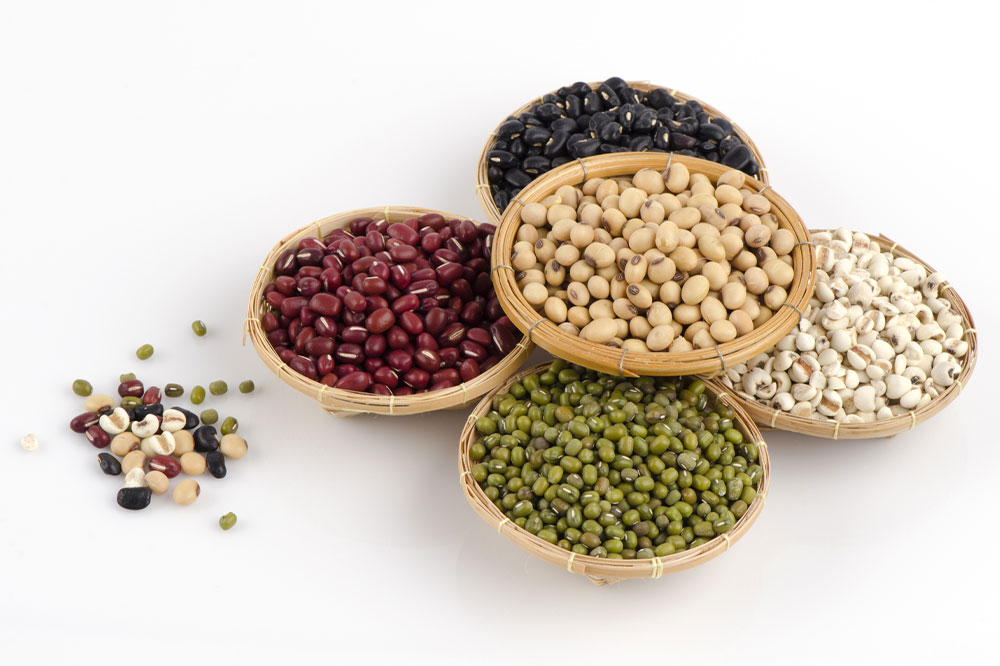Comprehensive Guide to Dietary Strategies for Maintaining Strong and Healthy Bones
This comprehensive guide dives into essential dietary strategies to promote strong and healthy bones. Covering key nutrients like calcium, vitamin D, and protein, along with lifestyle tips and food choices, it provides practical advice for maintaining skeletal health at every age. Learn how to prevent osteoporosis and fractures with balanced nutrition and healthy habits for lifelong bone strength.

Maintaining robust and healthy bones is a vital aspect of overall wellness and longevity. A well-balanced diet rich in essential nutrients not only supports daily skeletal function but also plays a crucial role in preventing serious bone-related conditions such as osteoporosis, fractures, and other degenerative bone diseases. In this extensive guide, we will explore the most effective dietary strategies to promote optimal bone health, discuss the importance of key nutrients, and offer practical tips to incorporate these into your daily routine.
Strong bones form the foundation for mobility, stability, and overall quality of life. As we age, our bone density naturally decreases, making it even more important to prioritize bone-supportive nutrition throughout life. Combining proper dietary intake with healthful lifestyle practices can help preserve bone strength and prevent long-term skeletal issues.
The Importance of Calcium for Bone Health
Calcium is undeniably the cornerstone nutrient for healthy bones. Approximately 99% of the body’s calcium is stored in your bones and teeth, providing structural integrity and strength. Without sufficient calcium intake, bones can become brittle and prone to fractures, increasing the risk of osteoporosis—a condition characterized by weakened bones and heightened fracture risk.
For adults aged 19-50, the Recommended Dietary Allowance (RDA) for calcium is about 1,000 milligrams daily. Women over 51 and men over 71 should aim for an increased intake of 1,200 milligrams per day, as aging accelerates the loss of calcium from bones.
Dietary sources rich in calcium include:
Dairy products: Milk, cheese, yogurt—these are among the most accessible and concentrated sources of calcium.
Dark leafy greens: Vegetables like kale, broccoli, spinach, collard greens, and Swiss chard provide significant calcium, especially valuable for vegetarians and those with lactose intolerance.
Fortified foods: Some plant-based milks, cereals, and orange juice are fortified with calcium to support dietary intake.
The Role of Vitamin D in Enhancing Calcium Absorption
Vitamin D is essential for calcium absorption in the intestine, helping your body make effective use of dietary calcium. Without adequate vitamin D levels, even sufficient calcium intake cannot prevent bone loss effectively. Deficiency in vitamin D can lead to rickets in children and osteomalacia (softening of bones) in adults.
The primary sources of vitamin D include:
Sensible sun exposure: Spending 10-30 minutes outdoors in sunlight several times a week allows your skin to produce vitamin D naturally.
Dietary sources: Fatty fish such as salmon, mackerel, sardines, and tuna are rich in vitamin D. Fortified dairy products, plant-based milks, and egg yolks also contribute to your daily intake.
The recommended intake of vitamin D is approximately 600 IU for adults aged 19-70, increasing to about 800 IU for those over 70 years old, to support optimal skeletal health.
Protein's Role in Maintaining Bone Structure
Proteins are vital for maintaining and repairing the bone matrix. Approximately 50% of bone volume is mineral, but organic components like collagen, a protein, provide flexibility and tensile strength. Adequate protein intake ensures the integrity of the bone's organic framework.
Sources of dietary protein encompass:
Animal-based options: Lean meats, poultry, eggs, and dairy products.
Plant-based options: Legumes, nuts, seeds, tofu, tempeh, and whole grains.
Particularly during developmental years and in older adults, maintaining sufficient protein consumption supports ongoing bone repair and health. However, excessive protein intake, especially from animal sources, should be balanced with other nutrients and lifestyle considerations.
Foods to Limit for Bone Health Preservation
While focusing on nutrient-rich foods, it is equally important to minimize or avoid certain dietary items that may compromise bone strength over time. Excessive consumption of processed foods high in sodium can increase calcium excretion through urine, leading to bone density reduction.
Additionally, high intakes of caffeine and carbonated drinks, especially colas, have been linked to decreased bone mineral density. Alcohol, when consumed excessively, interferes with calcium balance and impairs osteoblast function—the cells responsible for forming new bone.
To safeguard your skeletal health, practice moderation by limiting:
High-sodium processed foods: Chips, fast foods, canned soups, and snack items.
Caffeinated beverages: Coffee, energy drinks, and sodas.
Excessive alcohol: Aim for moderate consumption, if any.
Practical Tips for Incorporating Bone-Healthy Nutrition
Achieving a diet that supports strong bones is achievable with mindful food choices and balanced eating habits. Here are practical tips to help incorporate these strategies into your daily routine:
Start your day with calcium-rich breakfast options: Consider fortified cereals, Greek yogurt, or smoothies made with calcium-fortified plant-based milk.
Include a variety of colorful vegetables daily: Dark leafy greens, peppers, carrots, and sweet potatoes provide essential nutrients for bone health.
Prioritize lean protein sources at every meal: Incorporate chicken, fish, beans, or tofu to support collagen production and bone repair.
Limit processed foods and sugary drinks: Opt for whole foods and water as your primary beverages.
Engage in weight-bearing exercises: Physical activity stimulates bone formation and maintains density, complementing a nutritious diet.
Conclusion
Building and maintaining strong bones is a lifelong endeavor that starts with proper nutrition. By focusing on adequate calcium and vitamin D intake, consuming sufficient protein, and avoiding foods that deplete calcium reserves, you can significantly enhance your skeletal health. Coupled with regular physical activity, healthy lifestyle choices, and routine health screenings, these dietary strategies provide a comprehensive approach to lifelong bone strength and overall well-being. Prioritize these nutritional habits today to ensure a resilient, active, and healthy future.





